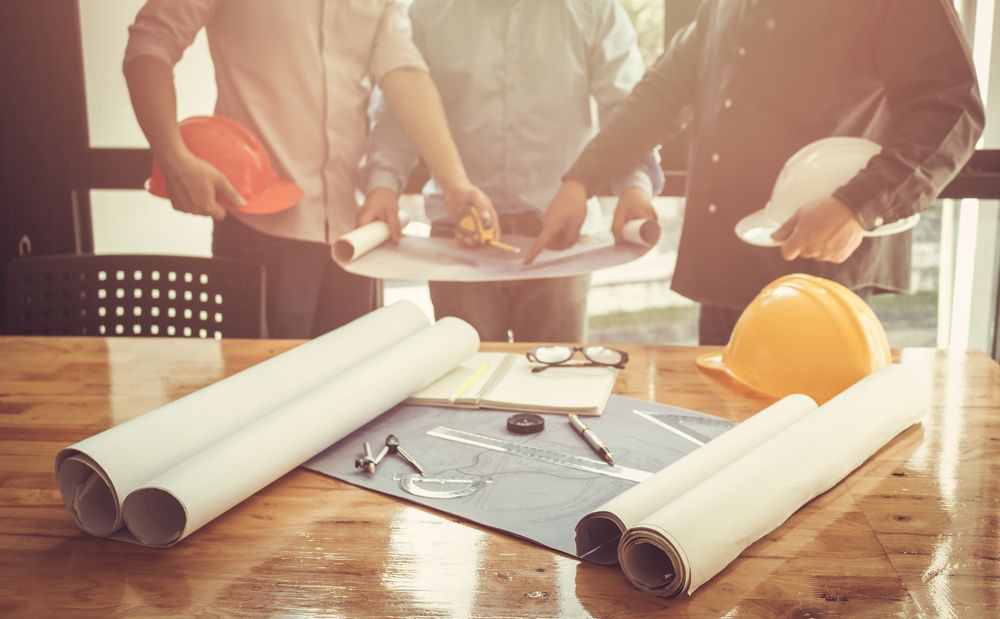
Welcome to the exciting journey of constructing your dream home! Buying a new construction home is a unique opportunity to tailor every inch of your living space to your preferences. However, navigating the home building process can be as complex as it is thrilling. It’s a path that requires patience, diligence, and a well-informed approach to ensure that your dream home turns into a reality without unwanted surprises. In this comprehensive guide, we’ll walk through the key steps and considerations to keep in mind before and during the construction of your new home.
Understanding Your Budget and Financing Options
Before you dive into the world of new home construction, it’s essential to have a clear understanding of your budget and the financing options available to you. Start by getting pre-approved for a mortgage, which will give you a realistic idea of how much you can afford to spend on your new home. Remember that the cost of new construction can extend beyond the price of the house itself, including land, upgrades, and unforeseen expenses.
To finance your new construction, you may need a construction loan that converts to a permanent mortgage upon completion of the home, or you may opt for a stand-alone construction loan that requires a separate closing process for your mortgage. Each option has its pros and cons, and it’s important to discuss these with your lender to determine the best fit for your financial situation.
In addition to the loan, factor in the potential for cost overruns, which are common in new construction. Have a contingency fund that accounts for these unexpected expenses. By understanding your budget and financing options, you can confidently move forward with building your home without overextending your financial resources.
Choosing the Right Builder and Location
Selecting the right builder is as crucial as choosing the location for your new home. Research potential builders thoroughly by checking their reputation, previous work, customer reviews, and any industry awards or recognitions. Request to visit their completed projects or speak with past clients to get a sense of their work quality and reliability.
When it comes to location, consider factors such as the community’s amenities, local schools, proximity to work, and potential for property value appreciation. Ensure that the lot you select aligns with your preferences, whether it’s a quiet cul-de-sac, a vibrant neighborhood, or a secluded plot with scenic views.
Be aware of any homeowner association (HOA) fees or regulations that may apply to your chosen location, as these can influence your living experience and home maintenance obligations. By carefully choosing your builder and location, you set a strong foundation for the home-building process.
Designing Your Dream Home
Designing your dream home is perhaps the most exhilarating part of the new construction process. This is when you get to decide on the floor plan, architectural style, and interior finishes that reflect your personal taste. Work closely with your builder or architect to ensure that the design meets both your aesthetic preferences and functional needs.
Consider future lifestyle changes, such as family expansion or aging in place, when finalizing your floor plan. Think about the long-term practicality of your choices, such as energy-efficient features that can save you money in the long run.
Remember that while high-end finishes and upgrades can be tempting, they can quickly inflate the cost of your home. Prioritize the elements that are most important to you and look for cost-saving alternatives that don’t compromise on quality. By making informed design choices, you can create a home that’s both beautiful and practical.
The Construction Phase
The construction phase is where your plans and decisions start to materialize. It’s essential to maintain open communication with your builder throughout this phase to stay informed of the progress and address any issues that arise promptly.
Expect to make numerous decisions during construction, from electrical outlet placements to tile selections. It’s normal for delays to occur due to weather, material availability, or other unforeseen factors. Stay flexible and patient, and keep a close eye on the build quality as your home takes shape.
Regularly visit the construction site to monitor progress and ensure that the work aligns with your expectations. Don’t hesitate to raise concerns with your builder if something doesn’t look right. Your involvement is key to ensuring that the final product matches your vision.
Preparing for Closing and Move-In
As your home nears completion, prepare for the closing process, which will transfer ownership to you. Review the closing documents in advance and understand the warranty coverage provided by your builder. Conduct a final walk-through of the property to identify any issues that need to be addressed before closing.
Once you’ve closed on your home, plan your move-in carefully. Coordinate with movers and ensure that your new home is ready to receive your belongings. It’s also a good time to familiarize yourself with the maintenance requirements of your new home and schedule any necessary services, such as landscaping or security system installation.
By preparing for closing and move-in, you can ensure a smooth transition into your new construction home and start enjoying the fruits of your labor.
Building a new construction home is an adventure filled with possibilities and challenges. By understanding your budget, selecting the right builder and location, designing with foresight, staying engaged during construction, and preparing for the final steps, you can navigate the home-building process with confidence. Your dream home awaits—armed with knowledge and excitement, you’re ready to bring it to life!
